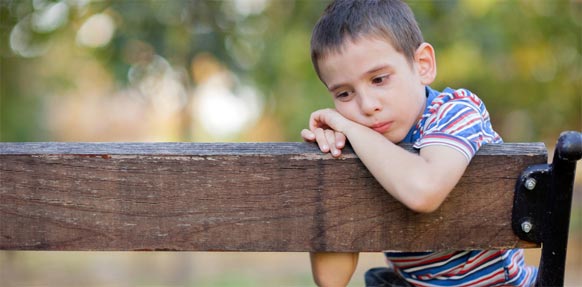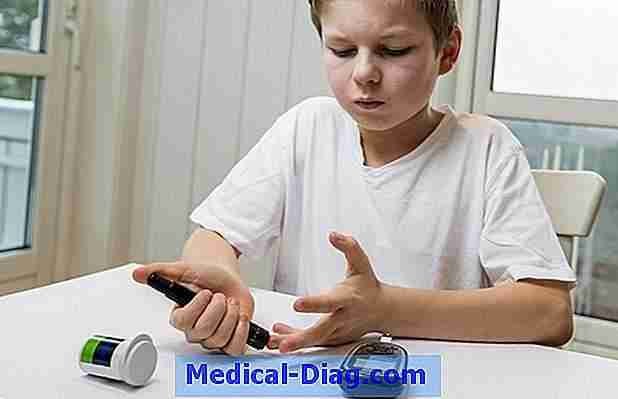Depression in children and adolescents: The range of mental illnesses among young people is large – just like the number of people affected. But the treatment options are just as great. The chances of success increase the earlier the mental illness is recognized and treated.

Many children, adolescents, adoptive children and their parents who find their way to the clinic have a variety of problems due to crises, difficult life situations, mental illnesses, health risks or traumatic experiences that they can no longer cope with on their own. The children and adolescents react with excessive demands and health impairments. The resulting emotional and psychological disorders can develop very gradually or suddenly in the form of an acute crisis.
In such and similar cases, we offer the patient competent help. Children from the age of 5 and young people up to the age of 21 can be accepted. In our department we offer full or partial inpatient therapy. Our specialist child or adolescent psychiatric and psychotherapeutic treatment is based on the latest scientific findings and includes extensive diagnostics, information and support for problems and questions that affect the child or adolescent and his parents. Our work focuses on the respectful, respectful treatment of our patients and their relatives.
In the clinic, the young patients are treated in age-homogeneous groups, depending on their level of development. All group treatments and activities come together at the ward for children up to the age of 12 instead of – The ward has child-friendly furniture and toys inside and outside the clinic. Depending on their developmental age and skills, specific educational and therapeutic offers also take place for the two stations of the adolescents. On the basis of the therapeutic concept, the experienced and specialized staff, the optimal spatial conditions and the security of care, the team addresses each age group individually.
How’s it going with us??
We don’t want to talk about you, we want to talk to you. After all, it’s about your body, your soul – yours Life.
Get to know us and our clinic without obligation during a first meeting with you and your family. You talk, we listen. Tell us about your worries, fears, your situation, ask questions as much as you like and have a look at our clinic. So you get a first impression of us – and we of you. After the interview, we have a feeling whether treatment is helpful for you. And if so, which of the various forms of therapy is the best. The most important thing is: All of our patients are voluntary with us.
Here on our website you will find a lot of information on various clinical pictures, therapies and can do self-tests. We would also be happy to send you information material.
So now for the details:
The treatment is either fully or partially inpatient. What does that mean?
The daily routine of full inpatient treatment is divided into therapy hours, activities and lessons and you stay with us overnight. But don’t worry: at the weekend you can go home taking into account your individual treatment situation. And of course your parents can come to visit you during the week. You can also make regular phone calls to them, just like your friends.
You will visit our day clinic for semi-inpatient treatment. You come to us from Monday to Friday, take part in therapy lessons and activities and visit our school. In the afternoon you drive back home. Regardless of whether you are fully or partially inpatient: Individual and group therapies are on your daily schedule, but also therapy offers with animals, art and music, you go to our school and can take part in sports and leisure activities.
Our team consists of competent and very well trained doctors, therapists, nurses and educators. They all have their areas of expertise and tasks. But the most important thing is: They are all people who want to help and support you. People who believe that you can find a solution to your problem together – and that everything will be fine in the best case.
Mental illness in children and adolescents
About a fifth * of all children and adolescents in Germany are mentally abnormal – and the trend is rising. This makes mental illnesses one of the most common illnesses among children and adolescents in Germany. Whether bullying on the Internet or an immense pressure to perform, which begins at primary school and continues during your studies: there are many reasons for this development. The increasing numbers also have to do with the fact that more attention is being paid to the topic in society. With good reason! Because mentally ill children, adolescents and young adults are treated early, the chances of a cure increase. ever by age and the level of development of children, adolescents and young adults focus on different disorders and illnesses.
Read here which mental disorders are most common in children, adolescents and young adults:
* Robert Koch Institute, study on "Study on the health of children and adolescents in Germany" (KiGGS wave 2)

Causes of the sick soul: causes and risk factors
Nobody is immune to a mental illness – it can affect everyone. And yet young people are particularly vulnerable. They experience situations that represent an extraordinary burden for them and at the same time are a risk factor for mental health. Under certain conditions, they can cause adolescents to develop behavioral problems or psychological problems that increase into a mental illness.
The causes and risk factors for mental illness in children, adolescents and young adults are diverse: For some, it is the separation of parents, school enrollment, bullying on the Internet or the immense pressure to perform that begins at primary school age and continues in the course of studies. For others, it is the death of a loved one, sexual abuse, or alcohol and drug abuse in the family. And physical causes also play a role: These include changes in the body and also neurobiological changes in the brain. Genetic factors can e.g. significantly affect the risk of mental illness.

Symptoms Recognize mental disorders: symptoms and warning signs
Irritated, aggressive, deeply sad: Most children and adolescents notice at some point. Their behavior should neither be dramatized nor trivialized. Rather, a close look is required – by parents, educators, teachers and carers alike.
But just looking is not enough. If there is evidence of a mental disorder, professional support should be consulted. Because the earlier the mental disorder is treated, the higher the chances of recovery. Doing nothing out of ignorance, ignorance, or fear of stigmatization can have serious consequences.
The symptoms in mentally ill children, adolescents and young adults vary depending on the disorder and age. Sometimes they develop different symptoms than adults – even though they suffer from the same mental illness in name only. For example, depression in children manifests itself differently from adolescents, which in turn differs from adults. Experts distinguish between outward symptoms (e.g. outbursts of anger) and inward symptoms (e.g. nightmares).
You should become aware of the following symptoms, closely monitor the behavior of the child or adolescent and seek advice if necessary:
- Selfharming behaviour
- difficulty concentrating
- Sleep disorders and nightmares
- Setbacks in development (e.g. bedwetting, thumb sucking)
- hyperactivity
- Ejecting sounds, blinking, twitching, constant repetition of words or sentences
- Listlessness, lack of interest
- Extreme weight loss or gain
- Aggressive and violent behavior
- Anxiety, withdrawal
- Resignation, dejection, sadness
- Repetitive actions
RELATED ITEMS
-

Mental disorders in children and adolescents: symptoms and warning signals
Warning signals for possibly existing illness 04/10/2015 by Dr. Christine Amrhein Mental illnesses are not common in children and adolescents…
-

Diagnosing mental disorders in children and adolescents
Anamnesis and diagnosis belong in the hands of experienced child and adolescent therapists in the psychotherapeutic or psychiatric treatment of…
-

Mental disorders in children – psylex
Clinical Psychology – Mental Illnesses How useful are preliminary examinations in children for mental illnesses? 02/16/2014 Researchers at the…
-

Diabetes in children and adolescents: signs and symptoms (2020)
With over a third of diabetes cases in the United States occurring in people over 65, diabetes is often considered to be age-related…
